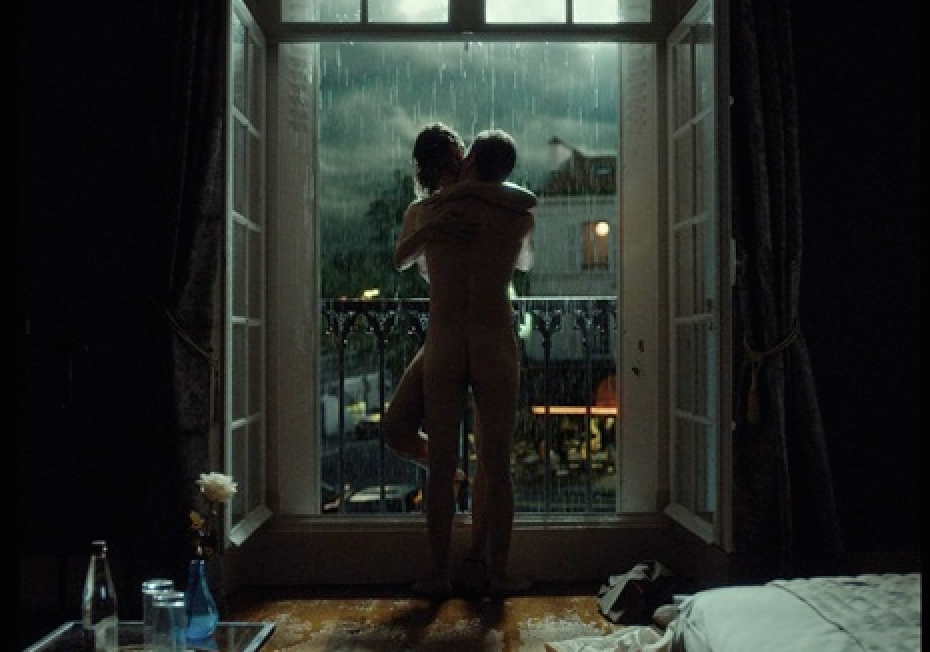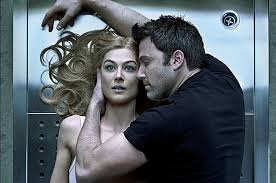 This weekend, the New York Film Festival kicks off its 52 year with a characteristic mix of big-deal premieres and artistically challenging fare from around world. Included in what looks to be one of its finest programs yet is a host of literary-minded films – book adaptations, biopics about writers, and films written by celebrated authors (think Bruce Wagner and Marguerite Duras). Here are the selections that pique our interest most.
This weekend, the New York Film Festival kicks off its 52 year with a characteristic mix of big-deal premieres and artistically challenging fare from around world. Included in what looks to be one of its finest programs yet is a host of literary-minded films – book adaptations, biopics about writers, and films written by celebrated authors (think Bruce Wagner and Marguerite Duras). Here are the selections that pique our interest most.
“The Blue Room”
Stateside, Mathieu Amalric is best known as the puckish star of such films as “The Diving Bell and the Butterfly” and the Bond film “Quantum of Solace.” But the French actor is also an accomplished director in his own right, and his latest offering is an adaptation of Georges Simenon’s slim mystery novel about a misbegotten affair between a married man (Amalric) and an increasingly unhinged woman (Stéphanie Cléau, who also co-wrote the screenplay with Amalric). With shades of Patricia Highsmith and Almaric’s sure, classical style, this noir promises to be neurotica at its most compelling.
“The Color of Pomegranates”
This account of the eighteenth-century Armenian/Georgian poet and folk hero Sayat-Nova by Sergei Parajanov was all but shut down completely by Soviet officials upon its 1968 release. (The director was even sentenced to five years of hard labor in Siberia.) Now restored completely, it is more of a cine-poem than a traditional biopic, with a series of stunning tableaus and heavy emphasis on Sayat-Nova’s own work. Not especially accessible, this highly formalist film is nonetheless as visionary as it is disobliging.
“Seymour: An Introduction”
To be honest, Ethan Hawke’s documentary about pianist and teacher Seymour Bernstein isn’t remotely literary. But it’s such a warm-hearted and lucid portrait of that rare artist who is at peace with himself and the world that we thought we’d give it a nod – especially since it shares its title with the great J. D. Salinger novel.
“The King and the Mockingbird”
A 1980 reworking of the great animator Paul Grimault’s truncated 1950 adaptation of Hans Christian Andersen’s The Shepherdess and the Chimney Sweep, this richly handcrafted adventure story for children doubles as a political satire for adults. Cast in bold primary colors with a terrifically subversive wink, this oh-so-French mix of the grotesque and the transcendent has only become available to American audiences this year. And how lucky for us.
“Heaven Knows What”
Directed by Joshua and Benny Safdie, Arielle Holmes and Caleb Landry Jones star as a pair of would-be rockers who wile their days away on New York’s Lower East Side as homeless heroin addicts beating up on themselves, their neighborhood, and each other. With a long lens and a spare, auteur-ish style that is more empathic than sympathetic, the brothers have created a portrait that’s documentary in feel – especially since it’s based on Holmes’ unpublished memoir Mad Love in New York City.
“Inherent Vice”
An adaptation of Tom Pynchon’s 2009 crime novel directed by Paul Thomas Anderson? One that stars Joaquin Phoenix, Josh Brolin, Reese Witherspoon, Owen Wilson, and Benicio Del Toro? Seriously, sign us up. In recent offerings “The Master” and “There Will Be Blood,” Anderson has burrowed so deeply into his morose interrogation of the human condition that we would be blamed for forgetting his jauntier blend of wit and bathos in earlier films like “Punch-Drunk Love,” “Boogie Nights,” and “Magnolia.” But if his latest project even remotely resembles its source material, this 1970s Southern California-set detective noir will be as waggish as it will be dark. Put simply, we can’t wait for this one, which has been selected as the festival’s centerpiece.

“Gone Girl”
One of the most eagerly anticipated films of the year, David Fincher’s suburban mystery is adapted by Gillian Flynn from her best-selling novel, and advance buzz (which has been uproariously positive) suggests that it’s more Flynn than Fincher in its tone. We’re not complaining. Ben Affleck stars as a former New York City magazine writer who is as disappointed by his life – he’s retreated to his Missouri hometown to care for his cancer-afflicted mother and run a bar with his sister – as he is by his patrician but strangely childlike wife (Rosamund Pike). When she disappears, the ensuing investigation reveals increasingly mysterious circumstances. This is the kind of layered, nuanced story that raises more questions than it answers about relationships, media, and our understanding – and misunderstanding – of ourselves.
This article was originally published in Word and Film.
